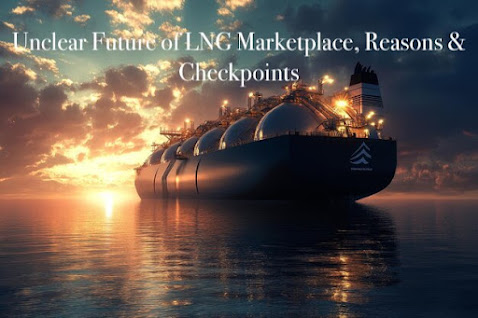Rule of Nuclear Energy in Ruwais LNG Plant & Alike
In the process industry, and specifically in the oil and gas sector, the continuous availability of essential utilities is crucial for maintaining process continuity. Electricity supply, in particular, represents lifeline of any process plant also a significant cost item. As a result, many operating companies choose to generate their own power and remain almost off-grid to ensure stable operations and insulate themselves from potential power disruptions.
In Abu Dhabi, the Barakah Nuclear Power Plant was commissioned in stages: Unit 1 began operations in August 2020, Unit 2 in September 2021, Unit 3 in October 2022, and Unit 4 in March 2024. The plant has significantly contributed to providing a stable and reliable power supply—not only for domestic use and small- to medium-sized industrial facilities, but also for large, energy-intensive industries like the LNG processing plant. It is also considered a source of clean energy, as it emits no greenhouse gases, thus supporting the UAE’s commitment to achieving Net Zero emissions by 2050.
ADNOC’s decision to adopt the E-Drive concept in the new Ruwais LNG Plant, which received its Final Investment Decision in mid-2024, enables the company to meet multiple objectives. These include decarbonizing operations, minimizing greenhouse gas emissions, lowering operating costs, reducing process complexity, and preserving a substantial portion of valuable natural gas for final products instead of consuming it during processing.
The E-Drive design replaces conventional gas turbines with electric motors to drive the compressors that handle feed gas. This allows the use of clean electrical power and positions the project as a low-carbon LNG development.
Ruwais LNG is designed to be powered by nuclear energy, along with renewable sources. The ADNOC's Ruwais LNG project will use a mix of renewable and nuclear grid power for its electric-powered processing facilities. This makes it one of the lowest carbon intensity LNG facilities in the world. The project is expected to be the first LNG facility in the Middle East and Africa to operate on clean power.
Ruwais LNG is a new liquefied natural gas project with an annual production capacity of 9.6 million tons. It is located in Al Ruwais Industrial City, in the western region of the Emirate of Abu Dhabi, UAE. The first of the plant’s two trains is expected to come online in the second half of 2028, with the second following in early 2029. Project development costs are primarily associated with engineering, procurement, and construction (EPC) of the LNG plant, which is valued at approximately USD 5.5 billion. ADNOC has welcomed Mitsui & Co., Shell, BP, and TotalEnergies as equity partners, each holding a 10% stake in the project.



Comments
Post a Comment